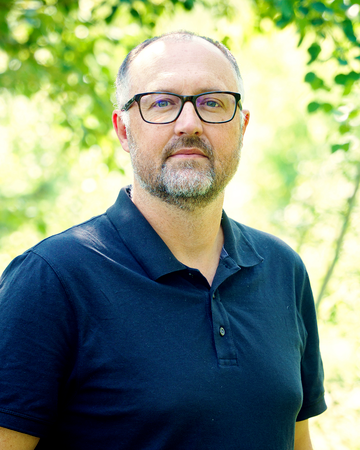Dr. Darcy Visscher is the new Canada Research Chair in Urban Ecology. The appointment recognizes Visscher's ongoing study of the effects of urbanization on animal habitat and behaviour, particularly focusing on urban coyote and white-tailed jackrabbit populations.

"The white-tailed jackrabbit project is an academic inheritance from Dr. John Wood, one of the early biologists here at King's," says Visscher. "Students have been involved in the research project from the beginning. I even helped out when I was an undergrad!"
Working in collaboration with Smart Parks, a conservation technology company based in the Netherlands, Visscher has developed radio collars specifically designed for the project. Over the next few years Visscher and his student researcher team will collar 60 jackrabbits in and around Edmonton. The collars transmit location data every fifteen minutes over the period of one year, allowing Visscher's team to analyze their movement patterns in urban areas.
"The collars also have the ability to ping smartphones in the area, so we can monitor the number of times these rabbits come into contact with humans," Visscher says. "Animals have personalities just like people, so this data will help us understand how different jackrabbits react to human encounters."
The jackrabbit and coyote projects will analyze genetics and diseases in each species. Visscher and his team will study zoonotic parasites that can be transmitted between coyotes and humans, revealing insights into human and coyote interactions that will help develop strategies to mitigate conflict and disease transmission.
Visscher looks forward to the opportunities this research chair position and funding will provide for student researchers on both projects.
"Urban ecology is such a great field for students because there's equity in who can get involved," he says. "You don't need expensive transportation or fancy camping gear to do field research. You can just go out and do it."
Studying urban ecology from a faith perspective also holds special importance for Visscher.
"For me, urban ecology is a tangible way to practice renewal and environmental reconciliation," Visscher says. "It's a way to reconcile the natural world and human-built world, and to work a bit more harmony into how we share these spaces."
Learn more about biology at King's: kingsu.ca/biology










